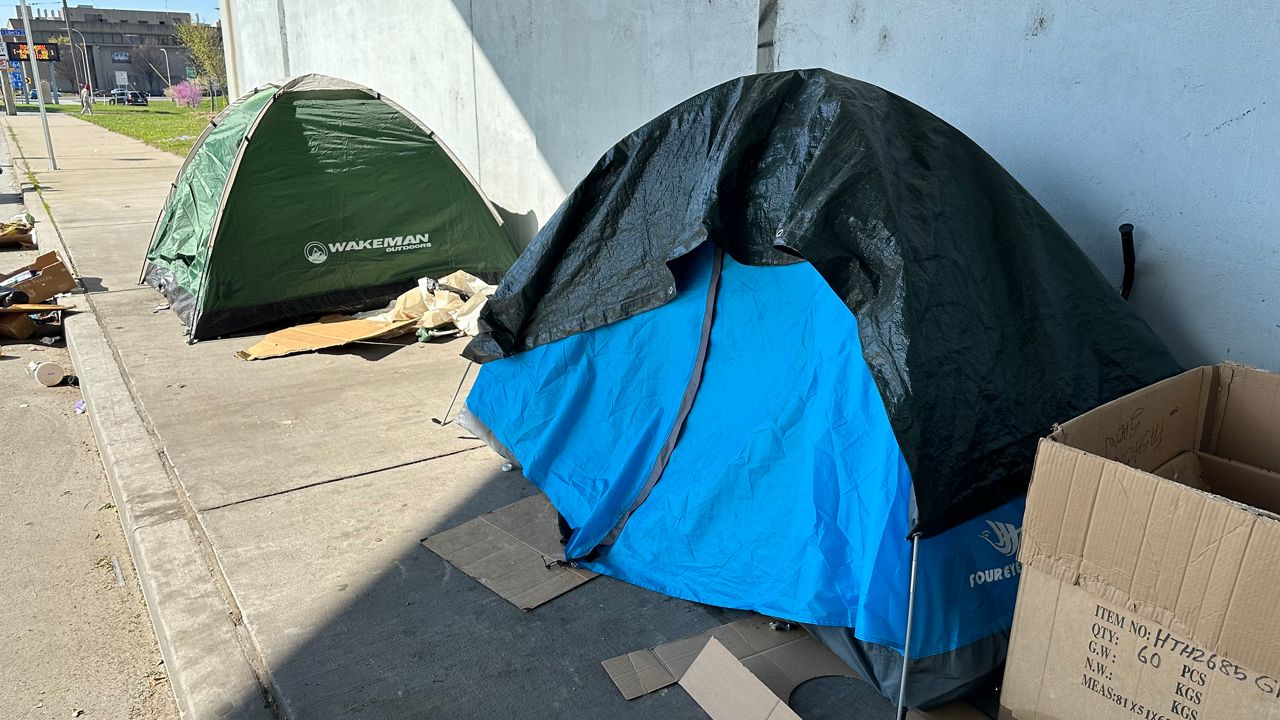LOUISVILLE, Ky. — A looming decision by the U.S. Supreme Court may affect how cities in Kentucky address "sleeping in public."
In the case, Johnson v. Grants Pass, the Supreme Court will rule whether a city or state can pass laws making it a crime to sleep in public. Some think fining homeless residents infringes on their Eighth Amendment rights, protecting them from cruel and unusual punishment, while others believe banning sleeping in public will encourage the homeless to seek shelter and treatment facilities.
The court’s forthcoming ruling has implications in the Bluegrass State. The Safer Kentucky Act takes effect in July, allowing cities to outlaw sleeping in public.
Addressing homelessness in cities like Louisville is more complex than ever due to this case. The court will determine whether criminalizing sleeping or camping in public constitutes cruel or unusual punishment if a homeless person has nowhere else to go.
Catherine McGeeney of the Coalition for the Homeless said there are hundreds of people without shelter on any given night in Louisville, with as many as 600 having nowhere to sleep when shelters are full.

At the same time the Supreme Court is considering how to rule, the Safer Kentucky Act is only a few weeks away from taking effect, allowing cities to fine people for sleeping or camping in public spaces. This new state law would be superseded if the high court rules such fines are unconstitutional.
“If the Supreme Court rules in favor of Gloria Johnson’s case, the homeless provisions of that will be illegal to enforce,” McGeeney said.
Bob McCabe, director of Overflow Community Center in Fern Creek, works with homeless residents each day and helps lead others into more stable housing.
“It starts with (a) relationship, being in constant contact, finding them what their true needs are," McCabe said.
Both McCabe and McGeeney said it also takes an investment. McGeeney added fining the homeless and even jailing them for something like camping in public would itself be costly and create even more problems.
“What we need are apartments that are affordable and safe and nice for the poorest people in our city," McCabe said. "And until we fund those things federally and in the state and locally on all levels, we will continue to see a homelessness crisis.”
The Supreme Court ruling will be issued by the end of the month.



